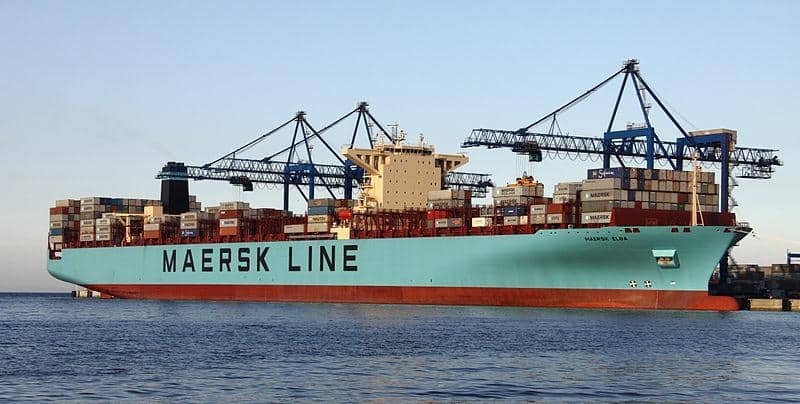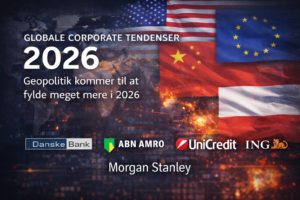A.P. Møller-Mærsk tager et skridt videre end de fleste andre danske selskaber omkring oplysning om tilstedeværelse i skattely. I CSR rapporten oplyses tre konkrete eksempler på velkendte skattely, hvor Mærsk er til stede, og hvordan koncernen forholder sig disse steder. Nemlig med oplysning om, hvor mange ansatte, omsætning, overskud før skat og samlet skattebetaling hvert sted. Mærsk er parat til landfor-land rapportering om skattebetalinger, oplyses det.
A.P. Møller-Mærsk har hvad der svarer til 362 fuldtidsansatte medarbejdere i Panama, og de genererede sidste år en omsætning på 39 mio. USD, hvilket gav et overskud på tre mio. USD. Skatten, som blev betalt, var én mio. USD, oplyses det i CSR rapporten. Tilsvarende var der i Ghana sidste år 759 fuldtidsansatte, som skabte en omsætning på 330 mio. USD og et overskud før skat på 175 mio. USD. Der blev her betalt 32 mio. USD i skat, svarende til knap 20 procent. Ghana anses dog ikke længere for at være et skattely, efter massivt internationalt pres har fået myndighederne til at ændre tidligere tiders kurs.
I CSR rapporten (side 18) gennemgås under overskriften “Hot Topics in Corporate Tax”, hvordan koncernen ser på forskellige problemstillinger indenfor corporate tax. Forklaringen lyder: ”The majority of the public debate on tax focuses on transparency in relation to multinational companies’ tax practices. To provide clarity, this section explains our practices on four of the most discussed tax topics: paying taxes where value is created, tax havens, tax incentives, and double taxation treaties.”
Om brugen af skattely oplyses det blandt andet, at ”A.P. Moller – Maersk is actively present in 130 countries, including some countries with no or low taxation. It is A.P. Moller – Maersk’s policy to comply with the tax regulation in the countries in which we operate, regardless of the local corporate tax rate. We are prepared for country by country reporting to the relevant tax authorities.”
Videre hedder det, at “furthermore, the Danish tax rules require that financial income from so-called CFC companies (Controlled Foreign Companies) is taxed in Denmark. The Danish CFC rules have been put in place to prevent profits from financial income being shifted to subsidiaries where little or no operational activity takes place. One example of A.P. Moller – Maersk being present in a country often named as a tax haven is Panama, where Maersk Line, Damco and APM Terminals (including inland services) have significant presence and activities. These companies have activities in the country, due to its position as a major shipping destination, centred around the Panama Canal.”
Risiko for transfer pricing
Om risikoen for transfer pricing, altså overførsel af overskud til lande med lav skat, oplyses, at “A.P. Moller – Maersk agrees to the principle of paying tax where value is created and this is also our policy. In most countries, transfer pricing regulations require A.P. Moller – Maersk affiliates to document that the pricing of our operating entities’ transactions with A.P. Moller – Maersk companies takes place on market terms. For example, we have obtained an agreement on how much a Maersk Line owned agency in China should charge Maersk Line in Denmark for services provided. Tax authorities in both Denmark and China met to mutually agree on the correct principles.”
A.P. Møller-Mærsk skriver overordnet om skat i CSR rapporten under overskriften ”Tax Principles”: “Adopting a justifiable and defendable tax position where the tax regulations allow for different interpretations or choices • Ensuring that a technical assessment is made and where appropriate, obtaining an external opinion for all major transactions where a tax position must be adopted. A.P. Moller – Maersk will only adopt a tax position, if we are prepared to defend it in the appropriate tribunals or courts.”
Mærsk signalerer, at koncernen lægger vægt på dialog med politikere, NGOer og andre stakeholdere om skat: “How tax is managed by A.P. Moller – Maersk The starting point for A.P. Moller – Maersk in managing tax is the legislation, both in the form of local tax laws and international tax regulations. The Board of Directors governs the handling of A.P. Moller – Maersk’s tax affairs. In this role, it is the highest approving authority of our tax principles, whereby we commit to comply with all applicable rules for tax reporting, as well as for paying taxes and disclosing tax charges. Tax matters are monitored by the tax department at our corporate headquarters, which also manages country and regional tax centres in key locations.“
Intro-pris i 3 måneder
Få unik indsigt i de vigtigste erhvervsbegivenheder og dybdegående analyser, så du som investor, rådgiver og topleder kan handle proaktivt og kapitalisere på ændringer.
- Fuld adgang til ugebrev.dk
- Nyhedsmails med daglige opdateringer
- Ingen binding
199 kr./måned
Normalpris 349 kr./måned
199 kr./md. de første tre måneder,
herefter 349 kr./md.
Allerede abonnent? Log ind her











